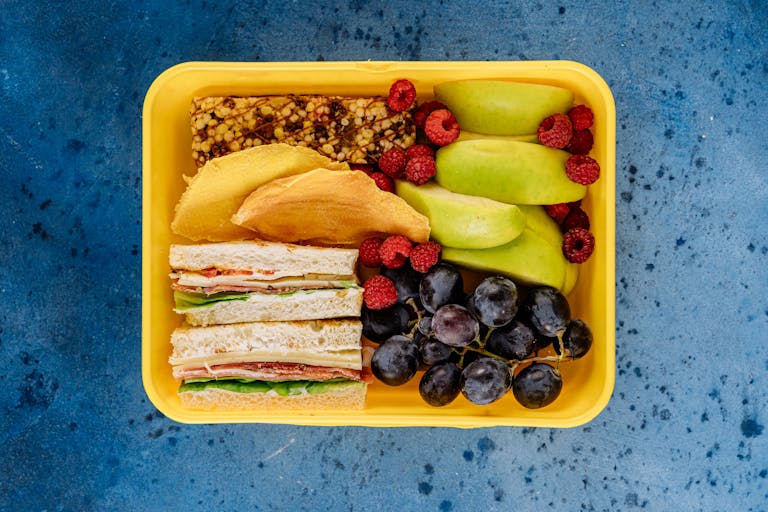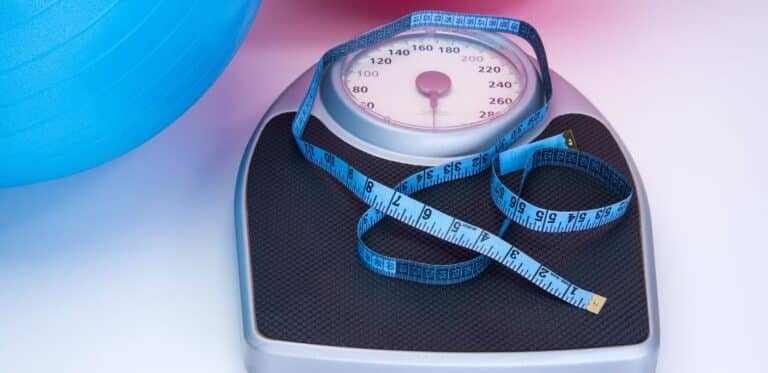How to Stop Snacking and Start Losing Weight
You’ve heard it before and we’ll say it again: between-meal snacking can make or break your diet.
It’s healthy and productive to reach for a snack to ease hunger pains or boost energy. However, snacking motivated by non-physical factors like place, routine, emotion or social environment may prove less beneficial. Constant snacking can be problematic because it leads to unintentional weight gain.
So, what can you do if you feel like you’re constantly heading back to the fridge or the pantry for another snack? Check out these 10 tips for how to stop snacking needlessly!
How to Stop Yourself from Snacking
Ready to take control of your snacking habit once and for all? Combine these first three tips with the time-specific tips below to conquer your cravings and feel better about your snacking habits.
1. Eat Regularly
One of the best ways to stop snacking is to plan your daily meals properly: know the food you are going to eat and when you will eat them. Skipping a meal can make you very hungry, which means you may end up eating too much at your next meal.
To avoid growing overly hungry, aim to eat a meal or small snack every 4-6 hours. Some people may be able to go a bit longer, while others (such as those with diabetes) may need to snack more frequently. When you follow a similar routine each day, it’s easier for your body to send your brain reliable hunger cues about when it’s ready for a meal or snack.
2. Stay Hydrated
Drinking your 8-10 glasses of water per day can also prevent ward off unwelcome snack attacks. It’s common for the brain to confuse hunger and thirst, so staying hydrated helps reduce these extra, not-so-accurate hunger signals. People who are larger (taller or heavier), more active or exposed to extreme temperatures should drink even more water to stay hydrated.
Whether the goal is health or weight loss, hydrate with water or herbal tea instead sugar-sweetened beverages like soda or sports drinks.
3. Track Intake
Research shows that people who write down what they eat lose more weight that those who don’t track intake. Committing to logging your meals and snacks can help prevent unnecessary snacking, simply because you don’t want to write it down.
Tracking – either manually or with an app – can also help you make sure your snacks contain an appropriate amount of calories and other macros (like protein or fat).
Healthy snacks should be about 100-200 calories each and contain a combination of lean protein (or healthy fat) and complex carbohydrates.
👉 Check out these 50 easy, healthy snacks for weight loss!

How to Stop Snacking at Work
Eating healthy at home, but find yourself grabbing snack after snack after you walk into the office? Try these more specific tips to combat the at-work munchies:
Treat Snacks like A Meal
Instead of snacking away the day, try to treat each snack like a meal. Every time you grab a snack, stick to some basic rules, such as:
- Sitting at a table
- Putting snacks on a plate
- Focusing on you food
The most important thing is to pay attention to the food you’re eating. Try your best to avoid eating while walking, driving, working or watching TV. The more intentional you are when snacking, the easier it is to identify when you’re full and should stop eating.
Pack Healthy Snacks
Yes, we are telling you to pack snacks as a strategy to stop snacking. No, we haven’t gone crazy.
Planning healthy, satisfying snacks that contain a good mix of healthy fats, protein and veggies will help keep you full and avoid the temptation of junk food. Most of us need 1 or 2 small, between-meal snacks each day, so plan for that and set yourself up for weight loss success.
Packaged, highly-processed foods contain many unhealthy additives and are designed to make you crave more and more – even when you’re no longer hungry. For this reason, it’s best to focus real, whole foods. They’re more satisfying, have better nutritional value and support your long-term health.
Combat the Underlying Cause
Unnecessary snacking can also stem from other emotions such as stress or loneliness. If you think you may be an emotional eater, for a couple of weeks make an effort to write down how you feel each time you reach for a snack. You may be able to identify a link between a certain emotional state and snacking so that next time you wander towards the vending machine, you think twice about if you’re actually hungry.
If it’s boredom or stress that’s driving you to snack at work, consider taking a short walk or grabbing a cup of tea instead of indulging in the often-unhealthy break room snacks.

How to Stop Snacking at Night
Do you make it through an entire day of healthy eating only to find yourself bingeing on chips or cookies before bed? If so, here’s how to stop late night snacking:
Brush Your Teeth Earlier
Brushing your teeth is good for oral hygiene and your waistline. Brushing your teeth earlier in the evening can help you snack less because most of us will think twice before tampering with our minty-fresh breath. It’s also a great way to distract yourself if you’re simply snacking out of boredom. Tonight try brushing your teeth just after dinner (instead of just before bed) to curb late night snacking.
Keep Yourself Entertained
Boredom is one of the most common reasons people eat at night. If you find yourself reaching for your favorite snack just because you want something to do, try opting for a non-food form of entertainment instead. Here are some ideas for things you can do at night instead of snacking:
- Stretch
- Read a book
- Talking with a friend
- Take a walk
- Practice yoga
- Start a new craft project
- Take a relaxing bath
- Write in a journal
Switch Up Your Routine
Certain activities such as watching TV, baking cookies or drinking alcohol often cause mindless snacking. If you notice that you always grab a snack as soon as you walk in the door, turn on the TV or you’re your first drink, make a conscious effort to replace that habit. Instead of a snack, try reaching for a glass of water, doing a skincare routine or playing with a pet during your usual snack time. Changing your routine is a relatively-easy way to help you gain control over your snacking.
Rearrange Your Pantry
Keep healthy snacks like apples or oranges on the counter or at the front of your fridge so they are easily-accessible when you’re hungry. At the same time, store less healthy snacks at the back of your pantry or in hard-to-reach places so you don’t reach for them out of habit or facility. After all, in many cases out of sight really is out of mind when it comes to snacking.
Have you tried these strategies, or you have other tips for how to stop snacking needlessly? Share them with us in the comments section below!
References
- Mullins, B. (2018, January 29). How to Stop Mindless Snacking.
- Petre, A. (2019, April 11). 13 Science-Backed Tips to Stop Mindless Eating.
- Micheals, J (2015, January 11). 6 Tips to Help You Curb Snacking.
- (Schohl, B.) Snacking: Does it Help or Hurt?






